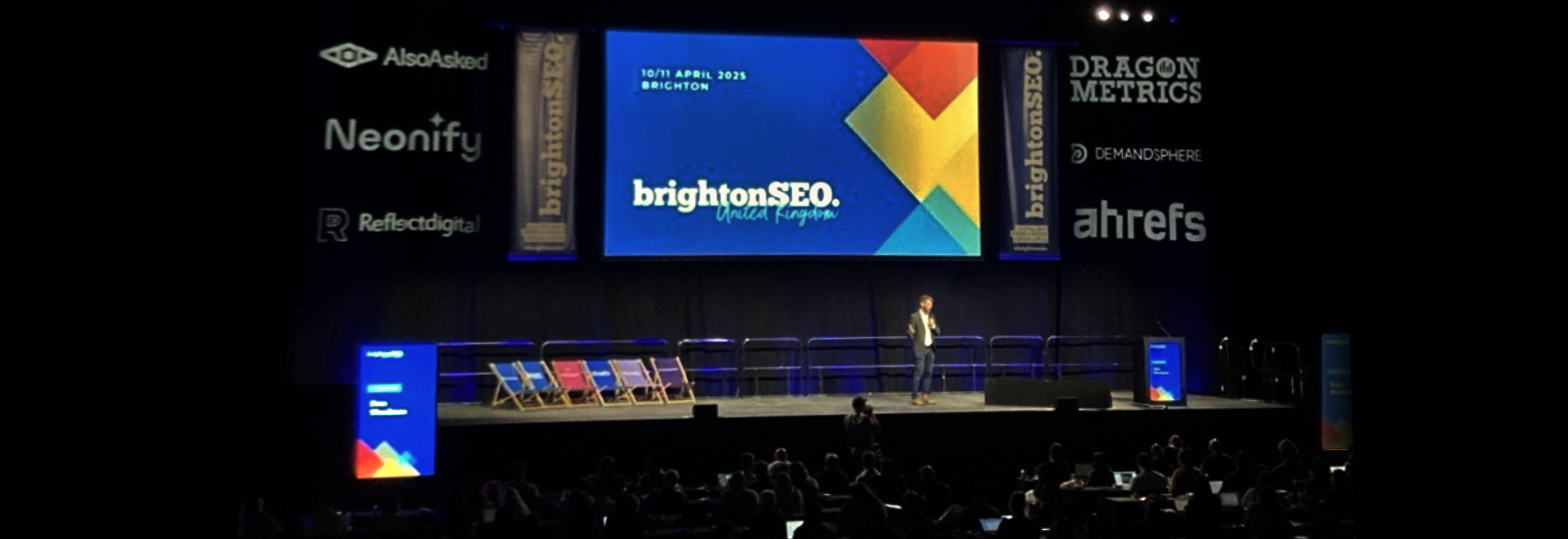Our SEO expert Sophia Choudhury shares the latest news and updates across SEO:
Google and Bing have developed new AI-powered search capabilities and SERPs
At the beginning of the month, Google launched AI-organised search engine results pages (SERPs) in the United States, initially focusing on recipe and meal searches on mobile devices, aligning with Google’s mobile-first indexing approach. While Google has indicated that this feature may eventually expand to include categories such as dining, movies, music, books, hotels, and shopping, there are currently no confirmed details or timelines for this expansion.
These AI-organised SERPs compile a range of content types, including articles, videos, and forum discussions, to offer users a multi-format results page. Google claims this approach will deliver a more diverse array of information sources and perspectives, providing users with a richer search experience.
Meanwhile, Bing has recently announced an expansion of its own generative search capabilities. However, Bing’s approach differs from Google’s as it focuses on handling complex, informational queries, providing results with citations and links to the original sources. Having said this, Bing’s generative search update remains in beta testing.
Why we care: The shift to AI-organisation of Google’s SERPs for marketers and content creators is significant as it may lead users to interact with SERPs and sources differently. As already seen with Google’s AI Overviews, AI-organised SERPs could potentially keep users on the search results page longer, which may lead to reduced click-through rates (CTR) for source websites. However, Google has assured users that tracking visibility and traffic metrics is still possible via Google Search Console. The role of AI in determining content organisation also raises concerns about possible biases in how information is presented, which could influence user perception.
In light of these developments, reassessment of content strategies may need to happen in order to maintain visibility within AI-organised results. Although the impact on ad visibility remains unclear, Google has stated that SEO professionals and content creators do not need to alter their approach at the moment. AI-organised search results are based on Google’s core ranking and quality systems, so adhering to existing best practices should continue to support visibility within these new SERP formats.
Google releases AI-powered shopping features
Google has introduced AI-powered shopping features in the United States, leveraging its Shopping Graph and Gemini models to enhance the online shopping experience. These features include AI-generated briefs that provide users with key considerations when evaluating products, as well as the option to disable personalised recommendations if desired.
The new shopping experience offers tailored interactions based on individual preferences, dynamic filters, and virtual try-on tools. With advanced categorisation, products are presented in a more organised and accessible format, aiding navigation. Dynamic filters allow users to refine searches by size, availability, and proximity, helping to alleviate decision fatigue. Additionally, a personalised homepage feed compiles shoppable products and videos aligned with users’ shopping habits and preferences, inspiring consumers and enabling them to seamlessly continue their journey by revisiting saved products, deals, and categories.
The platform aims to streamline the research, comparison, and purchasing stages of the customer journey. A dedicated ‘Deals’ page, launching soon, will showcase offers based on users’ past shopping behaviour. This section will include tools for price comparison, price insights, and tracking options, enabling users to monitor fluctuations over time. The deals experience will feature carousels with top and latest deals, product listing ads (PLAs), and more.
Why we care: This development offers significant value to brands, as it enhances their visibility at the research stage of a shopper’s journey. To optimise for Google’s AI, brands are encouraged to ensure that product data, including clear descriptions, high-quality images, and precise attributes, is fully optimised. Virtual try-ons add an interactive element, fostering greater consumer confidence and engagement, making high-quality product images essential.
Moreover, personalised homepages underscore the importance of tailored campaign efforts by brands, as well as the potential to secure featured placements in search results. Price comparison tools further highlight the need for competitive pricing and transparency, allowing brands to emphasise quality and value. Finally, feedback opportunities from customers, marketers, and Google’s AI hold potential for increasingly fine-tuned product recommendations, which could drive higher conversion rates over time.
New structured data information given by Google
Recent updates to schema markup have introduced several important adjustments, especially regarding Product and Organisation structured data.
For Product markup, Google has advised that this data should be embedded in the initial HTML of pages to ensure that details are readily accessible to crawlers. In addition, Google has expanded structured data support for certifications. As of April, the ‘EnergyConsumptionDetails’ markup will be replaced by the new ‘Certification’ type, enhancing merchant listings by supporting a broader range of countries and certifications, including CO2 emissions ratings for vehicles and energy efficiency labels for electronics. Google recommends that businesses currently using EnergyConsumptionDetails review their setup, plan for ahead for the transition to Certification markup, implement the change according to Google’s guidelines, and use the Rich Results Test to test the validity of the implementation. Monitoring search performance and the display of rich results post-implementation is also important.
Furthermore, the Sitelinks Search Box will be removed globally from 21 November due to declining usage. This removal will not impact search rankings or the display of other sitelinks, as it is purely a visual change. With this, Google will also remove the Sitelinks Search Box monitoring feature from both Search Console and the Rich Results Test. While structured data related to the feature can be removed from websites, this is not necessary and the ‘WebSite’ structured data type will still be supported.
Google continues to support JavaScript-generated markup for e-commerce sites but cautions that servers should be equipped to handle increased traffic from Google’s crawlers. Dynamically generated markup can result in less frequent and reliable crawls, especially by Google’s shopping-specific crawlers, which could impact the accuracy of time-sensitive information such as product availability and pricing.
Why we care: Structured data and schema markup is important as it opens the door for pages and websites to be featured in rich results and SERP features that extend beyond just page links and meta data. This is crucial in the ever-changing search landscape, particularly with Google’s development of new SERP layouts and AI capabilities.
Meta has developed a crawler to reduce its AI chatbot’s reliance on Google
Meta is reportedly developing a dedicated search engine index for its AI chatbot to reduce its dependency on Google for generating summaries of current events. This move reflects Meta’s ambition to evolve into a fully independent AI-powered search engine.
As part of this effort, Meta has been actively crawling the internet using a user agent named Meta-ExternalAgent. Despite some reports of excessive crawling, the stated purpose of this initiative is to enable Meta to summarise search results independently, thereby reducing reliance on Google and Bing for information sourcing.
Why we care: This development is significant as it suggests that Meta may be positioning itself to compete directly with established search engines in the realm of AI-powered search. The available information indicates that Meta aims to create a proprietary search index to support Meta AI, which currently relies on Google for sourcing information and summaries.
Author: Sophia Choudhury
Published: November 7, 2024


































